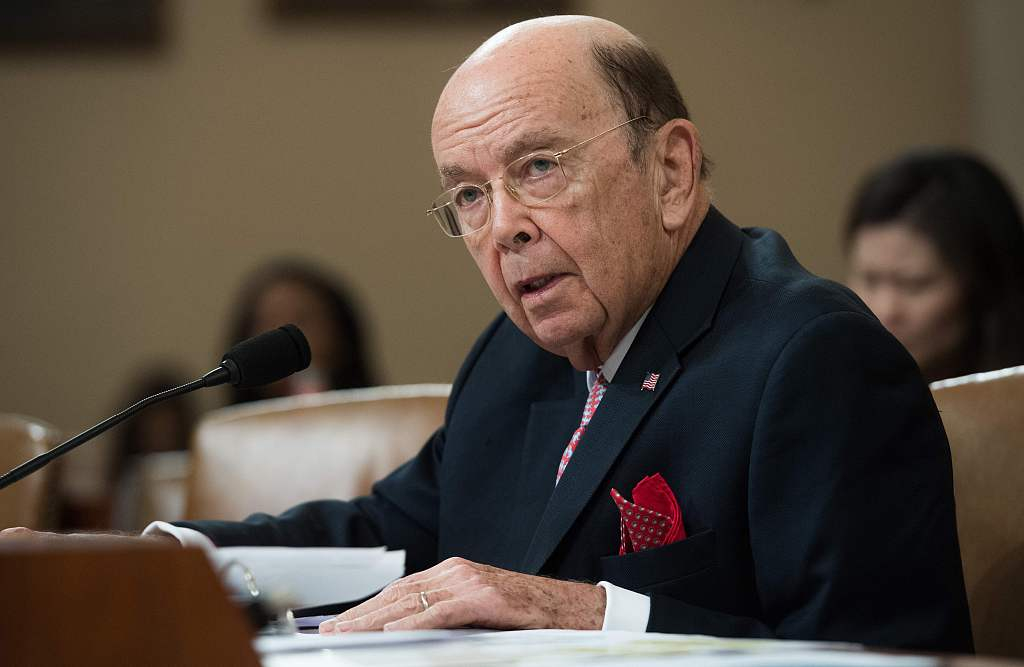
Analysis
21:19, 06-Jun-2019
Trump administration's false sense of victimhood
Updated
07:52, 07-Jun-2019
Xu Sicong

The China-U.S. trade war has been dragging on for almost one and a half years. Even though Trump's trade war mentality kept encountering pushback from numerous domestic groups, it is also important to note there has also been a good number of those who have wholeheartedly embraced the president's frantic approach to trade.
Among these people, there has been a great sense of victimhood which stems from the belief that the U.S. economy has been systemically undermined by China.
On June 6, the Chinese Ministry of Commerce released another official document following last Sunday's White Paper, specifically addressing the issue of "American victimhood."
How U.S. benefits from economic relationship with China?
Exposing the absurdity of such a concept, the report forcefully argues that the world's biggest economy has actually reaped enormous profits from its economic relationship with China.
For example, the deepening economic engagement with China has benefited the U.S. in two significant ways. First, according to the report, a total revenue of 940 billion U.S. dollars in 2017 was generated for U.S. businesses in China as well as U.S. exporters that exported services and goods to the country.
The second major category of benefits for the U.S. derives from three main sources – Chinese investment in the U.S., China's holding of the U.S. debt, and U.S. companies buying stakes in China's financial institutions (which thus gained profits). The report pointed out that in these ways the country had accumulated an enormous amount of 1.37 trillion U.S. dollars as of the end of 2017.
It is thus conspicuous that the China-U.S. economic relationship is never only favoring the former. It would only appear so when one picks and chooses his/her facts. There is no denying that China's miraculous economic transformations are made possible partly through its engagements with other economies as well as with the United States. However, the argument that China is the only beneficiary has clearly obscured the whole picture.
Cases where U.S. violated trade rules
In the meantime, the Trump administration has been constantly accusing the country of "cheating on trade" and engaging in "economic aggression." An article that appeared today on CCTV news app also rebuked such false victimization by giving three examples of U.S.'s blatant defiance of world trade rules.
This also illustrates one of the biggest ironies concerning the U.S. understanding of what is fair and what is not. For example, while the administration has been gushing about the unfair trade practices of other countries non-stop, it is found to continue to provide subsidies to Boeing despite fierce criticisms from the EU, as the article pointed out.
The disputes surrounding Boeing dates back to 2004 when both the EU and the U.S. accused each other of unfair subsidies to their biggest aerospace companies, Airbus and Boeing.
After eight years' prolonged legal battle, in 2012, the WTO's Dispute Settlement Body (DSB) ruled that the U.S. had violated WTO rules and that it should withdraw its subsidies for Boeing. However, the country has not been able to rectify its action despite the ruling. Earlier this year on March 29, the WTO ruled that the U.S. has still failed to remove its state tax subsidy for Boeing which the EU commission believed has "caused significant harm to Airbus, including lost sales."
As it appears, while the U.S. is absolutely blind to its unfair practices which endanger other parties' interests, it has an incredibly acute sense of others' "wrongdoings."
Moreover, there have been numerous other instances of U.S. violating trade rules, most notably, its protectionist approach to the country's steel industry as well as its abuse of anti-dumping action toward Chinese imports.

U.S. Commerce Secretary Wilbur Ross testifies about U.S. tariffs on steel and aluminum imports during a House Ways and Means Committee hearing on Capitol Hill in Washington, DC, March 22, 2018. /VCG Photo
U.S. Commerce Secretary Wilbur Ross testifies about U.S. tariffs on steel and aluminum imports during a House Ways and Means Committee hearing on Capitol Hill in Washington, DC, March 22, 2018. /VCG Photo
U.S. trade protectionism undermines world economic rules
Zhou Shijian, senior researcher at the research center of China-U.S. relations under Tsinghua University, stressed that these cases of U.S. defiance of trade rules are not recent occurrences. Nevertheless, the issue has come to the fore during the Trump administration which has clearly ramped up efforts to restore the U.S.'s declining industries, most notably its metal and automotive industries.
However, Zhou said that the country's steel industry has been shrinking for a reason. The industry enjoyed its booming period from the 1850s to 1950s. However, after the 1950s, due to cheap labor in Asian countries as well as the increasing integration of the world economy, it suffered a downfall, which means the day would eventually come when U.S. steel would lose its competitiveness globally.
But does that necessarily mean a net loss for the U.S. economy? Not at all. Zhou also pointed out that what has accompanied this trend is the significantly lowered prices of consumer goods as a result of cheap imports from Asian countries including China. For example, he said that if shoes and clothes items are manufactured in the U.S. the prices would be soaring.
Again, by ignoring this fact, the country could again play its blame game to its advantage. However, in this economic battle, this tactic of playing the victim card would only serve to damage the country's credibility, not to mention causing enormous disruptions to the global economy and its rules.
(If you want to contribute and have specific expertise, please contact us at opinions@cgtn.com.)

SITEMAP
Copyright © 2018 CGTN. Beijing ICP prepared NO.16065310-3
Copyright © 2018 CGTN. Beijing ICP prepared NO.16065310-3